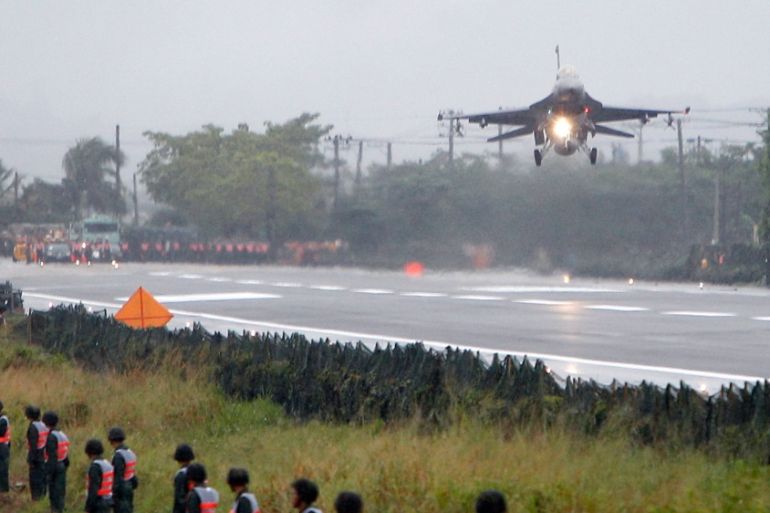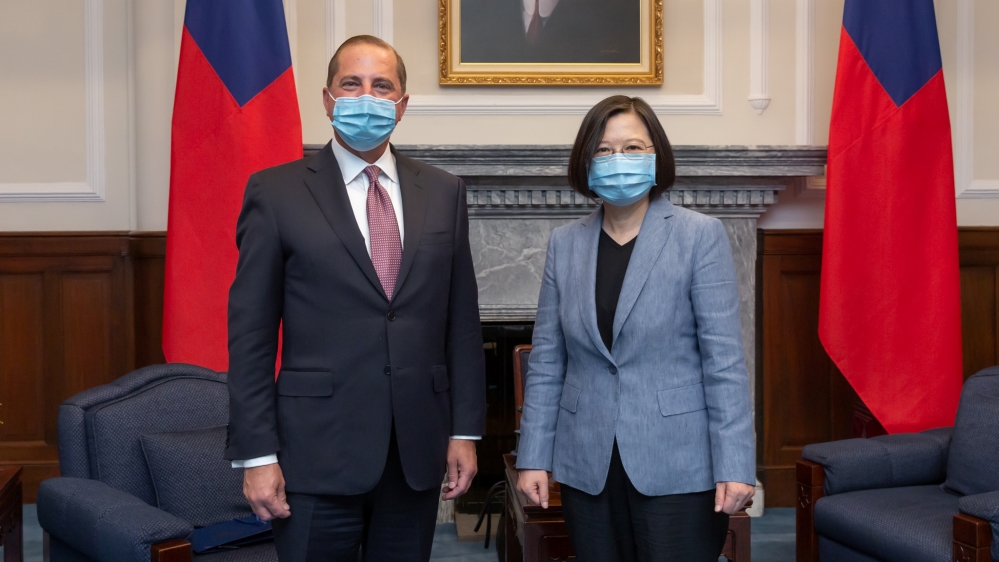US steps up support for Taiwan to counter rising China pressure
Washington declassifies six Reagan-era security assurances given to Taiwan, vows new economic dialogue with Taipei.

The United States said on Monday that it was establishing a new bilateral economic dialogue with Taiwan, an initiative it said was aimed at strengthening ties with Taipei and supporting it in the face of increasing pressure from Beijing.
Washington also said it had declassified six security assurances given to Taiwan during the era of US President Ronald Reagan – a move analysts said appeared intended to show further support for Taipei.
The US Assistant Secretary of State for East Asian and Pacific Affairs, David Stilwell, made the announcements on Monday, amid a continued deterioration in relations between Washington and Beijing and increasing pressure from China on democratically-ruled Taiwan, which it considers part of its territory.
Stilwell said the US is intensifying support to the island because of the “increasing threat posed by Beijing to peace and stability in the region” and its “deepening ties of friendship, trade, and productivity” with Taiwan.
|
|
Washington broke off formal diplomatic ties with Taipei in 1979 in favour of Beijing, but the US is bound by law to help Taiwan defend itself and is the main arms supplier to the island. The administration of current US President Donald Trump has made strengthening its support for the island a priority, and has also boosted weapons and equipment sales.
Trump is campaigning for re-election in November with a tough approach to China among his key foreign policy platforms, accusing his rival, Democrat Joe Biden, of being weak on China.
In August, Trump also dispatched his health secretary, Alex Azar, to Taipei – the highest-ranking US official to travel to the island in years – angering Beijing.
‘Significant adjustments’
Stilwell told a virtual forum hosted by the conservative Heritage Foundation that the latest US moves were not a policy shift, but part of a set of “significant adjustments” within Washington’s long-standing “one-China” policy.
“We will continue to help Taipei resist the Chinese Communist Party’s campaign to pressure, intimidate, and marginalise Taiwan,” Stilwell said.
“With a population of 23 million, Taiwan continues to punch above its weight in economics as well as governance, thereby making the world a better place.”
|
|
Taiwan’s Foreign Ministry expressed thanks for the show of support at a time when it said China was using military intimidation to damage peace and stability near Taiwan, and said it would continue to strengthen its defence capabilities.
Earlier on Monday, Beijing said that the anti-China pronouncements by certain US politicians are destined to fail, after another Trump official, National Security Advisor Robert O’Brien, said on Friday that the US should use its alliance in the region to cope with “challenges” posed by China.
Chinese Foreign Ministry spokesman Zhao Lijian said at a press briefing on Monday that some officials in the US were “driven by their zero-sum game mindset” and “Cold War mentality and personal gains.”
‘Six Assurances’

Daniel Russel, a predecessor of Stilwell until early in the Trump administration, said the “Six Assurances” made to Taipei by the Reagan administration in 1982 had been a “loosely kept secret” at best.
He said the decision to publish them looked like a compromise response to pressure from administration hawks to abandon “strategic ambiguity” – a long-standing policy of withholding a clear-cut US commitment to defend Taiwan while still showing sufficient support to deter any Chinese military adventurism.
This is quite a speech on Taiwan by @USAsiaPacific
Chief Stilwell. It says almost everything Taipei would want the US to say: E.g.: China is the problem, not Taiwan; Taiwan needs more international room. US will keep selling arms to Taiwan. https://t.co/lC56WurlXV— Julian Ku 古舉倫 (@julianku) August 31, 2020
Among the assurances made in 1982, but never formally made public, are statements that the US has not set a date for ending arms sales to Taiwan, nor agreed to prior consultation with Beijing on such sales, or to revise the Taiwan Relations Act that underpins US policy towards the island.
The assurances, Stilwell said, “endure today”.